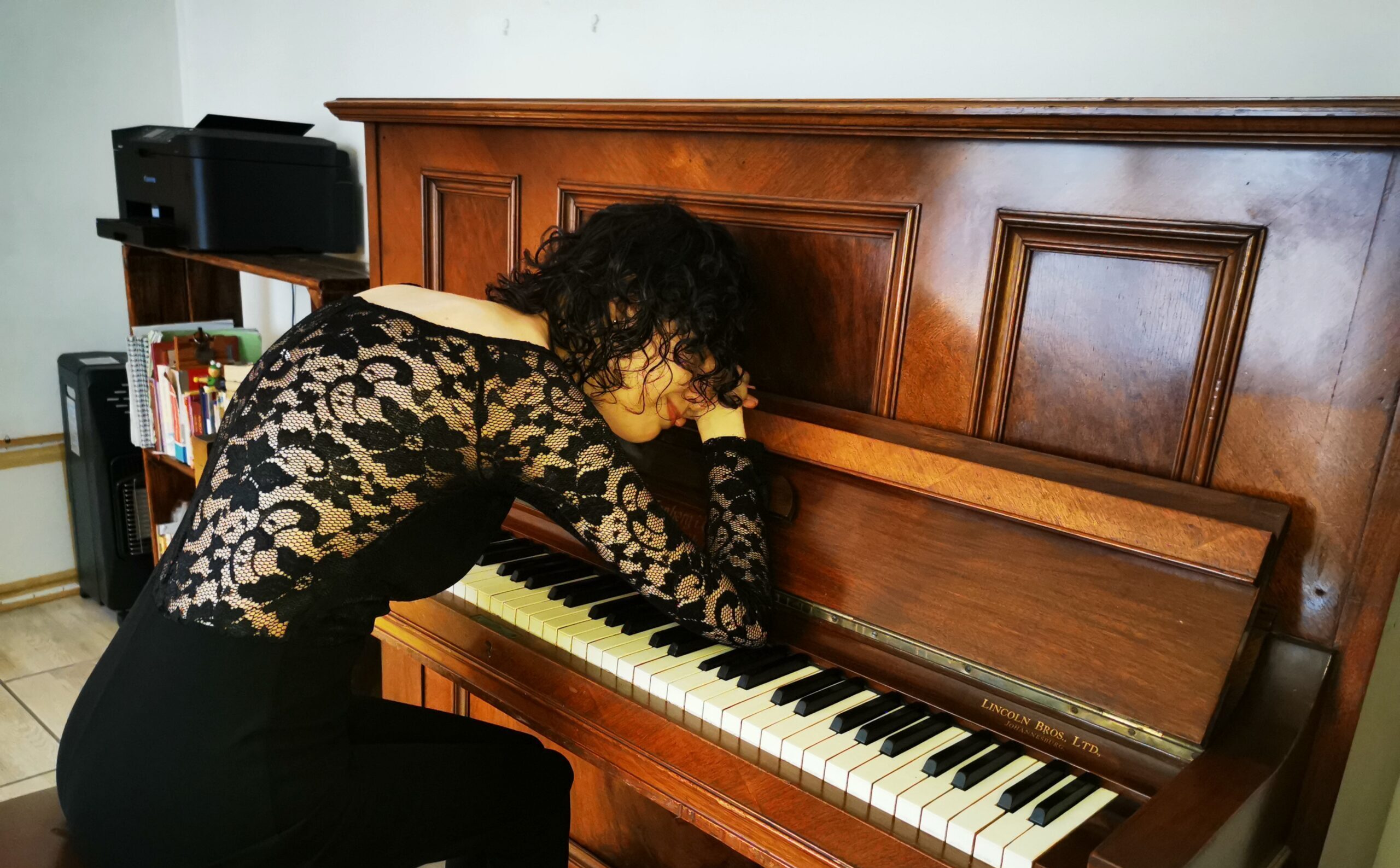”
Written byKlara Robertson
Lee van Wyk finds hope in the darkness with “Love’s Light”.
Navigating the winding, haphazard roads of Observatory, where cars park as they please and the speed limit is a suggestion, you may stumble across the quirky Theatre Arts, nestled within the Methodist Church. One ventures in to see independent theatre, made possible by those dedicated to promoting the arts in Cape Town. The Theatre in the Dark season currently showing at the characterful theatre is a totally off-the-grid eccentric series of performances.
The season is innovating a way of theatre that escapes load shedding and highlights the impact of load shedding on the nation. On for tonight: Lee van Wyk’s “Love’s Light“, a combination of familiar popular songs and classical romantic pieces mixed with some of English literature’s finest poems.
“My idea was to let people experience music and literature in a similar way to how I, as a legally blind performer do. Theatre In The Dark gives me a safe space to do so”.
Leaving the bustling streets of Obs and walking into a dimly lit theatre is a calming experience, where I naturally felt my thoughts become internalised as the noise around me stopped and the light faded. Now, walking in almost complete darkness, I realised that I was experiencing the world as director and curator Lee Van Wyk does, as a legally blind performer.
“My idea was to let people experience music and literature in a similar way to how I, as a legally blind performer do. Theatre In The Dark gives me a safe space to do so: to put on a show that isn’t necessarily focused on visual aspects, but can still be enjoyed and appreciated by all.” Now sitting in the dark, my eyes begin to close, and I hear the tinkle of the piano begin as Lee takes us through her series of spoken word, poetry, and song.
Familiar popular songs from Lana del Rey, Lord Huron, and Billie Eilish almost encourage me to sing along (thankfully, I don’t). Still sitting with my eyes closed in a peaceful darkness, I hear the passion in Van Wyk’s voice, as she sings songs of, well you know, love’s light.
Integrating these familiar songs with spoken word pieces such as “You cannot Know The Fears I Have“, “somewhere i have never travelled, gladly beyond“, “When I Have Fears“, and “OCD” makes for interesting connections across era’s and mediums, revitalising familiar words that change in meaning when set in conjunction with other. Van Wyk bridges the contemporary and classical, where different styles are integrated into a conversation.

My eyes begin to adjust to the darkness, and I can make out a solitary performer and piano on a bare stage. I wonder if Lee has slowly introduced more light into the theatre, or if there has always been a little light there that I just haven’t noticed. Almost as if planned, I hear the patter of rain coming from outside, and feel cosy and safe in the dim little theatre. The space offers meditation and reflection, as it creates an hour of tranquillity for an audience, who is then carried into a story of poetry and song.
I have sometimes felt, when watching a solo performance about something so close to the artist’s life, that I was intruding on a personal issue. I have felt excluded from the scene, left sitting and wondering why on earth I was supposed to be interested in a stranger’s story. This experience leaves one disappointed, feeling as if they are simply aiding a performer who seeks attention.
This was certainly not the case with “Love’s Light”, where the shared experience of music and poetry was an act of generosity from Van Wyk. Because of the darkness, there were no bright stage lights separating performer and audience. In a standard theatre, big stage lights disconnect the audience, but here, you are steeped in story and sound, invited into the world Lee has created. When the candle was brought onto stage and lit, an audience member later remarked that they were in fact “looking for the shadows”. Feeling serenely alone and yet strangely united in the darkness, the audience becomes comfortable living in Lee’s world.
Van Wyk makes the primary focus of the show on love, saying that the performance focuses on: “one’s love for the world as it is as well as one’s love for another person”. It is a story about life and growth: how we as humans come into the world and experience life and all its wonders and losses, using both familiar and classical poetry and song as a medium of expression.
The Theatre in the Dark season was the brainchild of Caroline Calburn, Theatre Arts’s visionary director. This innovative theatrical season explores embracing the darkness and finding the light within. Caroline has stated:
“While trying to plan a season at the beginning of the year with Stage 6 load shedding and equipment that had been affected adversely by these rolling blackouts, I dreamt of what it would look like to not have these worries, and an unplugged season i.e. work in the dark, was the first thing that sprung to mind. I believe that artists need to respond to the times and that adversity results in innovation.”
Overall, the experience of engaging with people so dedicated to their artform was a wonderful experience. I have not seen such intimate theatre in a while, where the audience was allowed to escape into their own train of reflection and contemplation, while maintaining an interconnected relationship between performer and audience.





